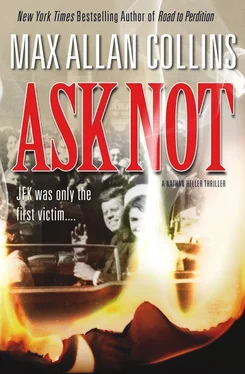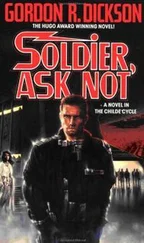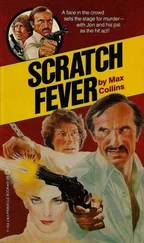Like railroad supervisor S. M. Holland, who saw rising from the knoll “a puff of smoke about six or eight feet above the ground right from under the trees.”
Like Dallas Morning News reporter Mary Woodward, who was standing in front and to the left of the fence and heard a “horrible, ear-shattering noise coming from behind us and a little to the right.”
Two of the interviewees were of particular interest, and import. The first was Deputy Sheriff Roger Craig, who met us at the Statler, where we sat midday at a corner table in the currently underpopulated Coffee House and Grill, an offshoot of the Empire Room.
The off-duty deputy arrived in a light-blue short-sleeve sport shirt and dark-blue slacks. He was tall, slender, dark-haired, probably about thirty. He could easily have played a cop on television, though his Texas near-drawl might have typecast him as the deputy he was. He was fine with being recorded.
Flo ordered a coffee and I had a Coke on ice, but our guest said water would be fine. He had that odd combination of assurance and shyness that you sometimes find in his profession.
“Here I come all the way to Dallas,” Flo said, mildly flirtatious (he was a handsome man), “and the first deputy I meet isn’t in uniform.”
“Well, Miss Kilgore, I’m off-duty for one, and for another, I’m a plainclothes man. A detective, like Mr. Heller here.”
Any civil-service detective who was like me should be watched carefully, but never mind.
“You know how this works, Deputy Craig,” I said. “Just tell us your story.”
He did.
“The morning of November twenty-second,” he said, his voice a warm baritone, “Sheriff Bill Decker called in all his plainclothes men, myself included, and informed us President Kennedy’s motorcade would be coming down Main Street. He wanted us to stand out in front of the courthouse, at 505 Main, to sort of represent the sheriff’s office.”
I said, “Not to aid in security for the President?”
“No. We were told the security had been arranged by the Secret Service and the boys in blue, the Dallas police. We were to take no part in it whatsoever.”
Flo said, “So you were all just standing in front of the courthouse when the assassination took place?”
“That’s right. A bunch of flat feet standing flat-footed.” He frowned and I read embarrassment in it. “There was a lot of stupid animosity toward the President among the sheriff’s men — hell, I may have been the only one who voted for him. I remember around quarter after twelve, just standing there stoked to think I’d be like four feet from the President of the United States, I said to Deputy Sheriff Jim Ramsey that the motorcade was late. And Ramsey said, ‘Maybe somebody shot the son of a bitch.’ That really brought home how all the other men around me resented being there, felt they’d been forced to acknowledge the presence of someone they hated.”
I asked, “Did you sense anything wrong, before the first shot?”
His eyes narrowed. “Well, something was bothering me — like any trained cop, I was just looking around, checking for anything that seemed out of place. That’s when it occurred to me — there weren’t any officers guarding the intersections, or controlling the crowd, either. Not that there was anything I could do about it.”
“This is before the motorcade approached.”
“Right, but then suddenly cheers started and there President Kennedy was, him and his beautiful wife, smiling and waving, and his smile was infectious. Right then, I wasn’t a deputy sheriff, I was just an American citizen getting caught up in the moment. Then the limo made its turn onto Elm Street, and it was only seconds before the first rifle shot.”
For several seconds, nobody said anything.
He swallowed and took a deep breath and let it out. “You know, I’ll take a Coke myself.”
I called the waitress over, ordered it, and when she was gone, said to him, “Once you heard the shot, what did you do?”
His eyebrows flicked up and down. “Well, I ran like hell toward Houston — I was maybe fifteen feet from the corner, but before I got there two more shots rang out. I couldn’t believe it, it couldn’t be happening, but of course it was, and I kept running, ran across Houston and beside that little pool, on the west side, that reflecting pool, and I knocked a guy out of my way and he splashed in. I ran across the grass between Main and Elm, people scattered on the ground like they were gunshot victims, too — I even stopped and checked a mother and child to see if they were okay. The President was long gone by now... in every sense I guess.”
His Coke arrived and he had a sip.
Flo said, “We’re told the immediate reaction of many was to head for the so-called Grassy Knoll.”
He nodded. “I saw a Dallas Police officer run up the there and go behind the picket fence near the railroad yards. I followed his lead, and, man, behind that fence, that was complete confusion, utter hysteria.”
“So,” I said, “people were behind the fence at this point, and in the parking lot?”
“Oh yeah. I began questioning witnesses, and pitched in to help the Dallas uniformed guys restore order. When things got calmed down some, I started in questioning people who were standing around at the top of the incline, asking if anyone had seen anything strange or unusual before or during the shooting.”
“Had they?”
“Well, a number of people thought the shots came from the area of the Grassy Knoll or from behind the picket fence. But the most interesting, and I think reliable, witness was a Mr. Arnold Rowland. He and his wife were standing toward the top of the knoll on the north side of Elm. Something had caught Mr. Rowland’s attention waiting for the President to arrive. Approximately fifteen minutes before the motorcade got to Dealey Plaza, something caught his eye — a white man standing by the sixth-floor window of the Texas School Book Depository building in the southeast corner, holding a rifle equipped with a telescopic sight.”
“Did Mr. Rowland alert anyone?”
“No. He thought they were Secret Service agents — a natural enough assumption for a citizen.”
“‘They’?”
“He also saw a darker-complected male — colored, or Latin maybe — pacing back and forth, in the southwest corner window. I passed Mr. and Mrs. Rowland along to another deputy, and I understand the Warren Commission has talked to them, although the wife didn’t see anything.”
He sipped his Coke again, and I sipped mine, letting him take a moment to further gather his thoughts. I could sense Flo’s excitement, which I shared — this felt closer to being there than had our tour on foot the other day.
“Well,” he said, allowing himself a sigh, “traffic was heavy by this point — the patrolman assigned to Elm and Houston had left his post, probably dealing the crowd and the chaos. I made my way over to the south side of Elm, to look for any signs of bullets striking the curb or the street or anything. By now it had been established that the President had been shot... this must have been around twelve-forty... and that’s when I heard a shrill whistle.”
“What kind of whistle?”
He held two fingers near his mouth. “Like a kid whistling, to get your attention. Coming from across the street. I turned and saw a white male in his twenties running down the grass from the direction of the book depository. A light-green Rambler station wagon was coming slowly west on Elm. The driver was a husky-looking Latin, with dark wavy hair, wearing a tan Windbreaker. Driver was looking up and leaning over at the guy running down toward him. The station wagon pulled over and picked him up — guy was wearing a long-sleeve work shirt and faded blue trousers.”
Читать дальше












